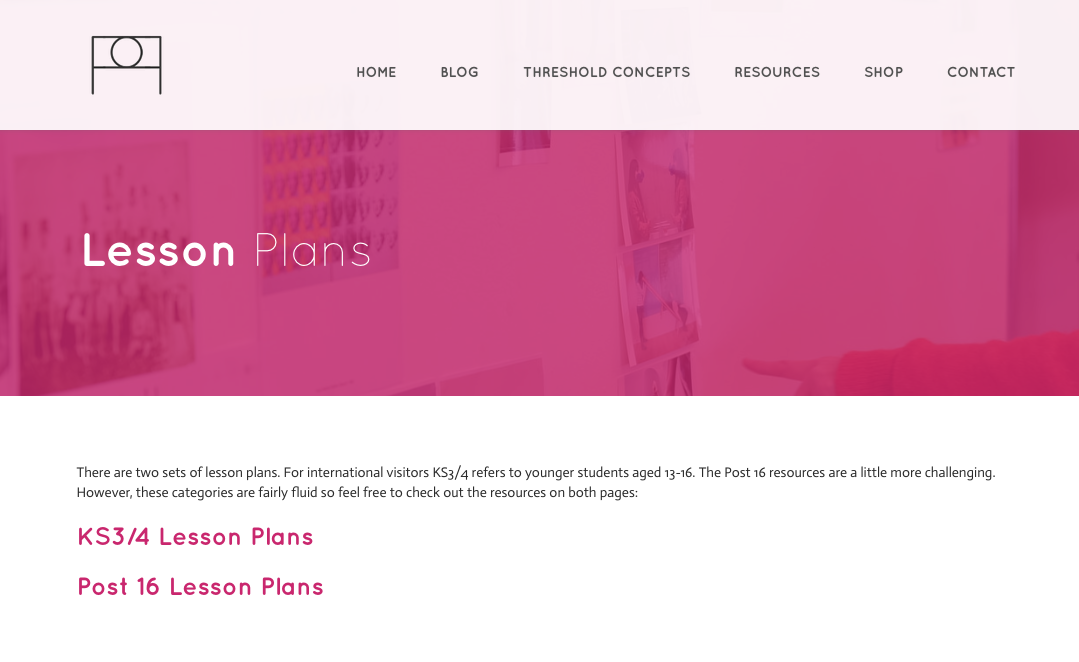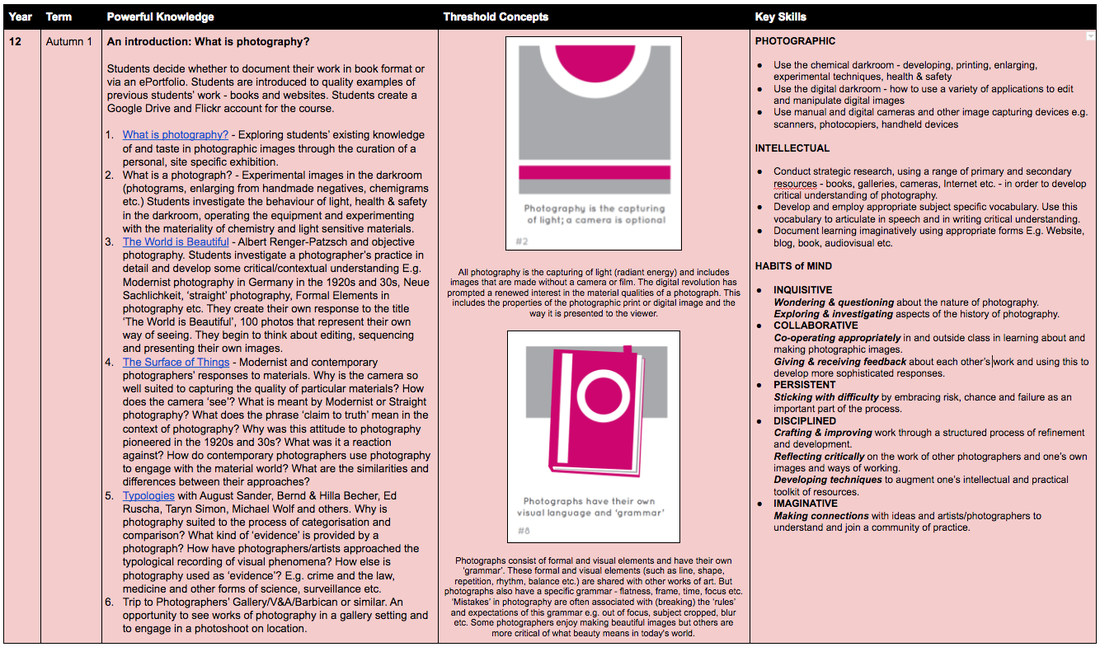It's been another long, hard and exciting year with seemingly very little time to take care of non urgent business. Now the summer holidays have arrived, we can take stock, reflect and do a bit of much needed housekeeping at PhotoPedagogy Towers.
You may have noticed that the website is getting a slight facelift. Here are some of the changes we've made:
- The homepage is more visual with (a lot) less text. A grid of hyperlinked images highlights particular resources on the site.
- For those wishing to know a bit more about PhotoPedagogy, the old homepage is now an About page and sits underneath the new Home page with an invitation to Contribute to the site.
- The Threshold Concepts now have their own place in the menu and are, hopefully, easier to find and use.
- Some of the older Resources have been retired. If you really miss something, let us know and we'll reinstate it.
- The Lesson Plans have now been subdivided into KS3/4 and Post 16. We've removed reference to GCSE and A-level, since students and teachers of other courses (such as BTECs) in this country and abroad might also find the resources useful. These pages also look a bit different.
Thanks to everyone who has contacted us over the last two days, whilst we were moving stuff around, to ask about the location of missing pages or dead links. If only we were professional web designers we'd have made all the changes without you even noticing, but we're not. Hopefully, most things are back where you might expect them to be now. If you spot anything weird or missing, please let us know!
The folks at pic.london have been in touch and we're hoping to support them with a workshop at their next big photography event sometime in 2019.
We have begun planning our next 2 day CPD session for Tate Exchange, working closely with Autograph ABP and The Photographers' Gallery. As soon as we have confirmed dates and details, you'll be the first to know but, at the moment, the plan is to hold an event similar to last year's during the first two days of the February half term (18 and 19 February 2019).
We've been invited by Photoworks to run a session for teachers at this year's Brighton Photography Biennial. This will take place on Saturday 29 September, the opening weekend of the event. Here are the details in case you're interested in getting involved:
The New Playground
A PhotoPedagogy workshop for teachers
Saturday 29 September
Specifically aimed at teachers of Art and/or Photography at GCSE and A level, this session sets out to promote ambitious classroom practices celebrating diversity and experimentation, while embracing ambiguity and uncertainty as driving forces for creativity.
Using PhotoPedagogy’s Threshold Concepts – the big ideas photography students should encounter – this session will consider:
• How to challenge and engage students in a gallery setting
• How to promote collaboration and active participation
• How to explore a range of contemporary approaches to photography
• How to consider context, curation and location
• How to encourage critical debate alongside playful experimentation
Times: tbc
Location: Central Brighton
Cost: Free
For more information and to book your place please email [email protected]
We'd like to thank everyone for your support this year and wish you a very happy summer holiday. We look forward to working with you again in September!
Best wishes,
Jon & Chris





 RSS Feed
RSS Feed